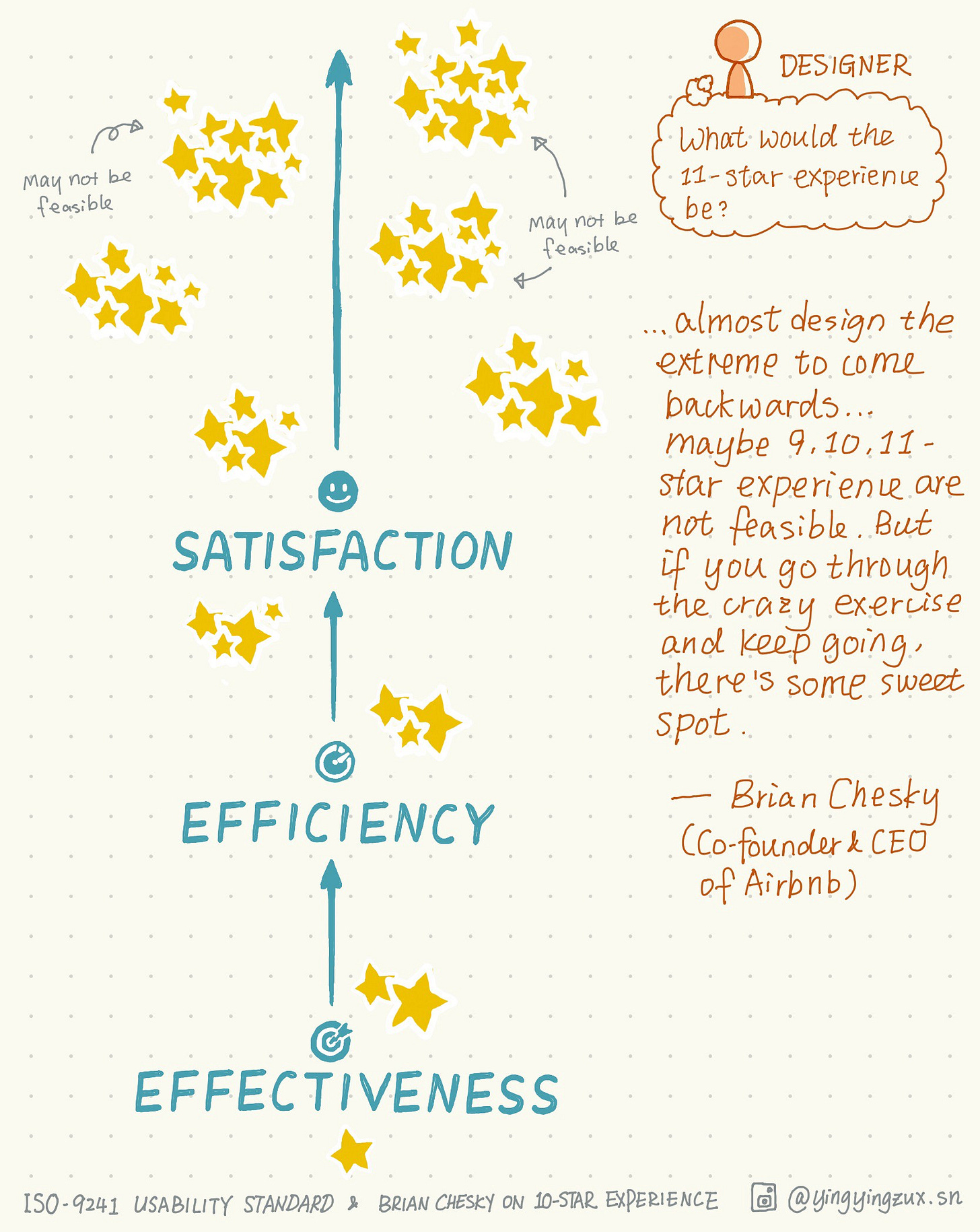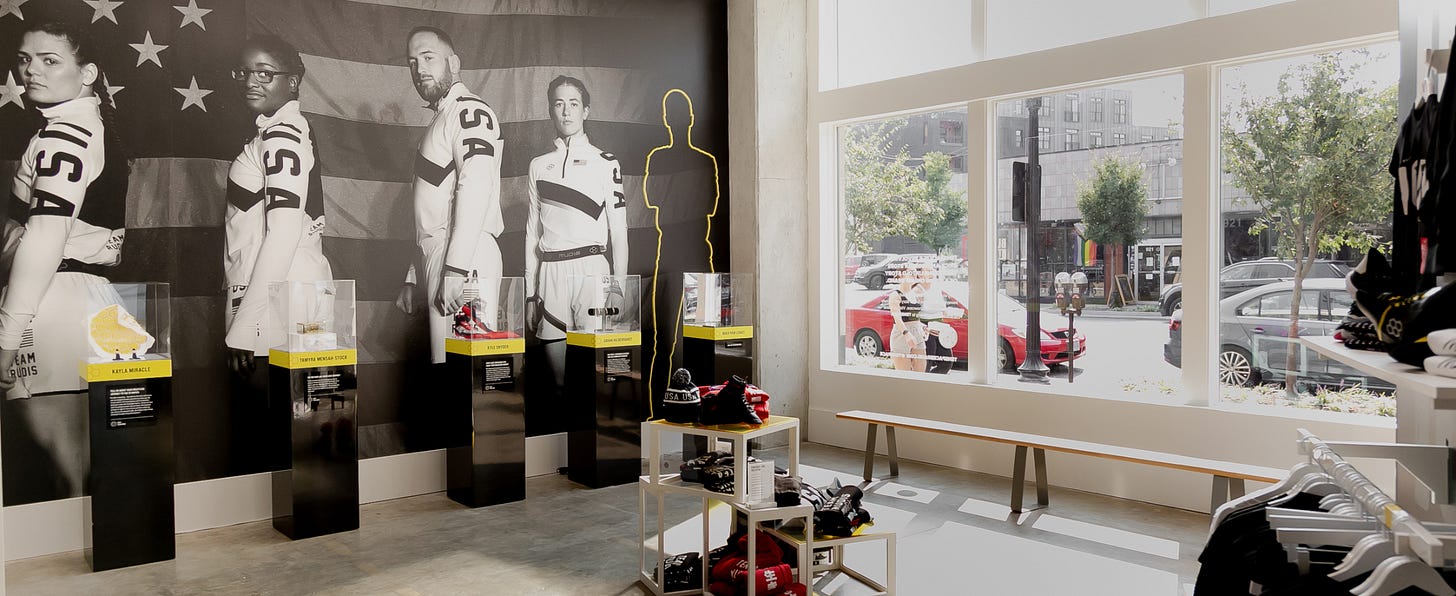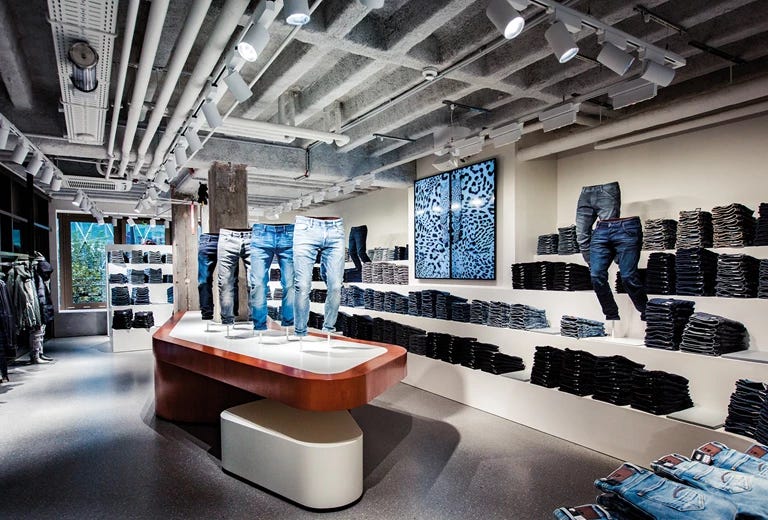No, Airbnb is not a retailer. So why am I writing about them? C’mon, you know the answer! It’s because they serve customers / guests at scale every single day, and they do it pretty well! Merchants like you and I do the same (sometimes we do a good job at it, other times not so much), and therefore I am convinced we can learn some things from Brian Chesky, Airbnb’s co-founder. See if you agree!
Before we jump in, a reminder that time is running out to subscribe to (or upgrade to) our premium edition at the current rate of $100/year. On May 1, the price will increase to $250/year…still a great value in my humble opinion but certainly a bit more expensive. So click the button below now and save!
Not convinced? Well, here is what you get in addition to the tons of actionable content we share every single week which if used, will grow your sales, increase your profits, reduce your expenses, and in general lower your stress levels (this last point is anecdotal and not-FDA approved).
New All Things Retail issues mailed weekly.
Exclusive content in the premium editions.
Free tools and templates to help you better manage your retail business.
Access to our subscriber-only Facebook community, where we discuss and share best practices, issues, trends, and opportunities in the retail business.
Subscribers-only Q&A posts.
20% discount on our Virtual Pop-Up Bootcamp.
10% discount on basic coaching & advisory programs from 3Pe Consulting.
Exclusive 3rd Party offers from sponsors and supporters of All Things Retail.
Full access to All Things Retail content archive.
Let’s try again:
So what’s up with this Airbnb focus? Well, beyond what I noted above, there are some interesting corollaries between their business and retail.
For one thing, they serve guests across a wide spectrum of locations. The quality of the experience is in the hands of local operators, and as we know this comes with a certain amount of risk. A great experience or a horrible experience will impact customer perceptions of the business, perhaps encourage social sharing, and may impact the brand itself.
The next similarity is that it’s critical to not only trust the local owners or employees to properly reflect the brand’s commitment, but also to provide them the framework, the training, and the support to allow them to excel in their service levels. Stores, houses, apartments, it’s all about guest service.
That’s where the concept of an “11 Star Experience” comes in. Brian Chesky, Airbnb’s co-founder, coined this phrase and built a set of services and performance expectations around it.
Now, an admission, I have never stayed in an Airbnb. So I don’t have any first-hand experience that Chesky has effectively impacted his entire portfolio with his take on the “11 Star Experience”. However, I do have a ton of second-hand feedback from friends and family that have stayed at Airbnbs many times and other that have stayed only once or twice. The overwhelming feedback is very positive, so I have become a believer.
So how should an “11 Star Experience” be defined? Chesky explains:
“A one star experience may consist of arriving at the accommodation, knocking on the door and no one opens, they never show up and you need to contact Airbnb to get your money back. Whereas a three star experience may constitute of having to wait 20 minutes for the host to let you in.”
He continues: “Moving ahead to a 5 star experience, that may consist of the host being there on time, they let you in and the stay is as you would expect it to be. That’s nothing spectacular, but there was nothing wrong with it either – so you have no reason to not rate it a 5 star experience. But that’s not going to result in anyone raving to all their friends about how great the accommodation was or Airbnb itself, right?”
5 Stars is pretty darn good in the view of many businesses and many guests. But Chesky felt it was vital to provide “stretch goals” to his operators, believing it would elevate the entire experience. He continues:
“So let’s look at a 6 star experience. You arrive at the accommodation, the host is there and welcomes you at the door. He shows you around the apartment, there is some candy and a bottle of wine waiting on the table. There’s cold water in the fridge and toiletries in the bathroom. That would already be a great experience and one which would give you a reason to use Airbnb again.”
But what about a 7 star experience?
“You arrive and the host welcomes you at the door. The fridge is fully stocked with food, beer, and soft drinks. The host already knows that you like surfing, his own surfboard is waiting for you outside and he’s already booked lessons for you. Oh, and he’s also leaving his car here for you to use and managed to organise a reservation at the hottest restaurant in the city.”
This is now a truly killer experience and my sense is that all of us would be thrilled with this level of service. But wait, there’s more!
What does a 10 star check-in experience look like?
This is what Chesky calls The 1964 Beatles Check-In. “You get off the plane at the airport and there are thousands of people cheering your name to welcome you to the country. You get whisked through security and there is a press conference at the front yard of the apartment which you are staying at with journalists eager to ask about your trip and what you have planned."
OK, a bit aspirational, but it gets the operators thinking of what special offerings can be added to a guest’s experience that will feel like that press conference.
…and now, the 11 star experience!
“Elon Musk picks us up from the airport. We ride on the back of an elephant from the airport to the house. A giant parade of people welcome us. Elon flys us on a private trip around the moon.”
Obviously this is very aspiration but it pushes the envelope (pretty hard) about how to make a stay truly exceptional. It’s an interesting way to get people to think about the business and the services provided.
So how would we accomplish this? Bring an “11 Star Experience” to our businesses? Reid Hoffman, founder of LinkedIn, (and former member of the “Paypal Mafia”), interviewed Chesky about this very subject. Here are 4 key lessons Chesky offered up in that interview.
“Over the last 20 years, I’ve worked on or invested in many companies that scaled to 100 million users or more. And just about every entrepreneur I meet with has that ambition as they get started. But here’s the thing: You don’t start with 100 million users. You start with a few. And in many ways, the best way to begin is to stop thinking big, and start thinking small. Hand serve your customers. Win them over, one by one. And don’t stop until you know exactly what they want.
That’s what Brian Chesky did. As co-founder and CEO of Airbnb, Brian’s early work was more akin to a traveling salesman. He went door-to-door, meeting Airbnb hosts in person, taking photographs of their space, and learning what they did and didn’t like about his product.
Lesson #1: Pay passionate attention to your user
“It’s really hard to get even 10 people to love anything, but it’s not hard if you spend a ton of time with them. If I want to make something amazing, I just spend time with you…. Early on, Joe Gebbia and I literally commuted to New York from Mountain View [to visit our Airbnb hosts in person]. We literally would knock on the doors of all of our hosts. We had their addresses and we say, “Knock knock. Hello. Hey, this is Brian, Joe, we’re founders and we just want to meet you.”
We’d find out ‘Hey, I don’t feel comfortable with the guest. I don’t know who they are.’ Well what if we had profiles? ‘Great!’ Well what do you want in your profile? ‘Well I want a photo.’ Great. What else? ‘I want to know where they work, where they went to school.’ OK.
So you add that stuff. And then you literally start designing touchpoint by touchpoint. The creation of the peer review system, customer support, all these things came from — we didn’t just meet our users, we lived with them. And I used to joke that when you bought an iPhone, Steve Jobs didn’t come sleep on your couch. But I did.
I remember we met with a couple hosts…. We walk up to the apartment and we went there to photograph the home. And we’re like, ‘I’ll upload your photos to the website. Do you have any other feedback?’ He comes back with a book, it’s a binder, and he’s got dozens of pages of notes. He ends up creating a product roadmap for us: ‘We should have this, this, this, this and this.’ And we’re like, ‘Oh my god this is our roadmap because he’s the customer.’ I think that always stuck in our mind: The roadmap often exists in the minds of the users you’re designing things for.”
STORY CONTINUES BELOW > > >
Sponsored Content
Lesson #2: Design an 11-star experience
“If you want to build something that’s truly viral you have to create a total mindf**k experience that you tell everyone about. If I say, ‘What can I do to make this [product] better?’ you’ll say something small. If I were to say, ‘Reid, what would it take for me to design something that you would literally tell every single person you’ve ever encountered?’ You start to ask these questions and it really helps you think through the problem.
We basically took one part of our product and we extrapolated: what would a 5-star experience be? Then we went crazy. A 5-star experience is: You knock on the door, they open the door, they let you in. Great. That’s not a big deal. You’re not going to tell every friend about it. You might say, ‘I used Airbnb. It worked.’ So we thought, ‘What would a 6-star experience be?’
A 6-star experience: You knock on the door, the host opens and shows you around. On the table would be a welcome gift. It would be a bottle of wine, maybe some candy. You’d open the fridge. There’s water. You go to the bathroom, there’s toiletries. The whole thing is great. That’s a 6-star experience. You’d say, ‘Wow I love this more than a hotel. I’m definitely going to use Airbnb again. It worked. Better than I expected.’
What’s a 7-star experience? You knock on the door. The host opens. Get in. ‘Welcome. Here’s my full kitchen. I know you like surfing. There’s a surfboard waiting for you. I’ve booked lessons for you. It’s going to be an amazing experience. By the way here’s my car. You can use my car. And I also want to surprise you. There’s this best restaurant in the city of San Francisco. I got you a table there.’ And you’re like, ‘Whoa. This is way beyond.’
So what would a 10-star check in be? A 10-star check in would be The Beatles check in. In 1964. I’d get off the plane and there’d be 5,000 high school kids cheering my name with cars welcoming me to the country. I’d get to the front yard of your house and there’d be a press conference for me, and it would be just a mindf**k experience. So what would an 11-star experience be? I would show up at the airport and you’d be there with Elon Musk and you’re saying: ‘You’re going to space.’
The point of the the process is that maybe 9, 10, 11 are not feasible. But if you go through the crazy exercise, there’s some sweet spot between “They showed up and they opened the door” and “I went to space.” That’s the sweet spot. You have to almost design the extreme to come backwards. Suddenly, doesn’t knowing my preferences and having a surfboard in the house seem not crazy and reasonable? It’s actually kind of crazy logistically, but this is the kind of stuff that creates great experience.”
Lesson #3: Create a magical experience… and then figure out what part of that magical thing can scale
“We put up these flyers anonymously saying, ‘Seeking a traveler. We’ll photograph your trip to San Francisco if you let us follow you.’ This guy Ricardo replied. He was from London. We sent a photographer around with him while he was just travelling in San Francisco. What we learned was his trip was awful. He’d show up, he’d go to Alcatraz by himself, put on the headset, and then he’d go to Bubba Gump Shrimp. He’d stay in a budget hotel. He’d go to a hotel bar by himself, sitting with a bunch of dudes at the bar but he doesn’t talk to anyone because he was introverted.
We call him back. We said, ‘Ricardo, we want to create the perfect trip to San Francisco for you.’ We fly him back. We had the team storyboard the perfect experience for Airbnb. We had a driver pick him up at the airport. We took him to the perfect Airbnb. He went to these dinner parties. We got him the best seats at restaurants. We took him on this midnight mystery bike tour.
I see him at the end of the trip. I say, ‘How was your trip?’ He says, ‘It was amazing.’ And then I walk away. He yells at me. ‘Brian, one more thing.’ He starts crying. He breaks down. He says, ‘Thank you. This is the best trip I’ve ever had.’ I was like, ‘Oh my God. I guess it worked. It really moved him.’
I don’t think anyone ever tried to design an end-to-end experience for somebody like they’re in a movie before and we did it. That became a blueprint. We said we are confident on an unscalable basis that we know how to create a trip that deeply moved somebody — that was better than anything they’ve ever experienced. The question is: Can we develop a technology that scales and do it 100 million times?
This is the narrative of every movie you’ve ever seen: A main character starts in an ordinary world. They leave their ordinary world. They cross the threshold to a new, magical world where all these obstacles happen and they overcome something. They call it the hero’s journey. We applied this to trips, built a small team, and we spent the last couple of years figuring out how to scale this. And this has led to what we have today which we call Airbnb Trips.”
Lesson # 4: Take advantage of the time before you scale
“I tell a lot of entrepreneurs who don’t have traction, I miss those times. Yes, it’s exciting to have traction, to have a company that has huge scale. But the biggest leaps you ever get are when you’re small. Another way of saying it is: Your product changes less the bigger you get because there’s more customers, more blowback, more systems, more legacy.
The most innovative leaps you’ll ever make, especially if you’re a network, are going to be when you’re really, really small. You can change the product entirely in a week. Try doing that at LinkedIn or Airbnb today. That would be a huge disaster. So I think taking advantage of that subscale — designing the perfect experience, asking yourself what you can do — is amazing.”
Retail News You Can Use:
Malls See a Big Rebound in Foot Traffic in March
The Resurrection of Retail
Emerging Retail Trends Set to Upend Traditional Retail Buying and Delivery
Exclusive: Walmart’s New Redesign Looks A Lot Like Target—With One Major Difference
Reno Walgreens Using Classical Music to Deter Loiterers
GameStop and the Reemergence of the Retail Investor
Executive Presence Isn’t One-Size-Fits-All. Here’s How to Develop Yours
Cool Pics:
Quotes of the Week:
“Airbnb is about the nexus of the online and offline to create the perfect customer experience.” - Joe Gebbia
“I think the key that makes Airbnb is the fact that we're a community, not just a series of commodities.” - Brian Chesky
“And, based on the famous three-click rule from Steve Jobs, a design hero of Chesky and Gebbia’s—when Jobs conceived the iPod, he wanted it to never be more than just three clicks away from a song—the founders wanted their users to never be more than three clicks away from a booking.” - Leigh Gallagher, The Airbnb Story










